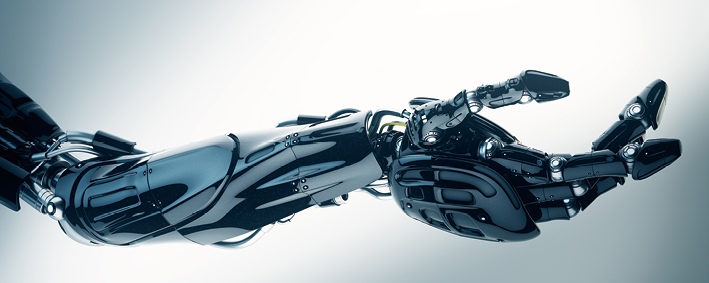 |
CCST9050 Science, Technology and Big Data
|
Course Description
What happens when intelligence, flesh, and the machine intersect? Robots are playing an increasingly important role in applications including daily life, arts and entertainment, manufacturing, healthcare, and the military. They are getting ever closer to our lives, such that our ways of living will be substantially affected. This paradigm change raises a series of questions ranging from philosophy, technology, to economics. Through such wide-angle discussion about the applications of robotics in our daily life, students will not only be inspired by the numerous ground-breaking technologies which nurture our economics, medicine, arts, humanities and culture, but also will be capable of justifying the corresponding impacts in both positive and negative aspects. This course will offer students an opportunity to explore not only the technological advances of robotics, but also various key issues and perspectives such as a) The historical emergence of robots and their current prevalence in daily life; b) The relationship between the human body, machines, and intelligence; c) The general perception of robots and intelligent machines, in contemporary film, music, or video games; d) The cutting edge of robotic research; e) The major principles of problem solving in robotics; f) The socio-economical, legal and ethical impacts as well as the latest controversial issues of using robots.

Course Learning Outcomes
On completing the course, students will be able to:
- Describe and explain the definition and understanding of robots; introduce the artificial intelligent systems with the reflection of the understanding on our own human being.
- Use relevant information about the importance and widespread occurrence of robotics; comprehend the basic components of robots, and its working principles; understand the control (low-level) and learning (high-level) of robots.
- Trace the historical development of robotics; identify the major technological breakthrough advances, as well as their capabilities and limitations.
- Realize the potential of robots, analyze the possible ways that robots could interact with and hence affect our lives; keep abreast with the frontier technology, thus be able to evaluate the claims and conjectures in the mass media, by identifying the social, economic, artistic and ethical impacts of robots.
- Create a proposal on discussion of an example robotic solution to a practical problem with pros and cons, not limited to the following areas: medicine, elderly care, industrial manufacturing, entertainment, sports, society and education.
Offer Semester and Day of Teaching
First Semester (Wed)
Study Load
| Activities | Number of hours |
| Lectures | 20 |
| Tutorials | 8 |
| Laboratory demonstrations | 4 |
| Reading / Self-study | 32 |
| Assessment: Essay / Report writing | 40 |
| Assessment: Presentation (incl preparation) | 47 |
| Total: | 151 |
Assessment: 100% coursework
| Assessment Tasks | Weighting |
| Essay | 40 |
| Tutorial participation | 10 |
| In-class assessment | 10 |
| Group project and presentation | 40 |
Required Reading
Selections from:
- Asimov, I. (1950). I, Robot. New York: Gnome Press.
- Bostrom, N., & Yudkowsky, E. (2011). The ethics of artificial intelligence. In K. Frankish & W. M. Ramsey (Eds.), The Cambridge handbook of artificial intelligence. Cambridge University Press.
- Gutkind, L. (2009). Almost human: Making robots think. New York: W.W. Norton & Company.
- Wallach, W., & Allen, C. (2010). Moral machines: Teaching robots right from wrong. Oxford: Oxford University Press.
Course Co-ordinator and Teacher(s)
| Course Co-ordinator | Contact |
| Professor P. Lu Department of Mechanical Engineering, Faculty of Engineering |
Tel: 3910 2548 Email: lupeng@hku.hk |
| Teacher(s) | Contact |
| Professor P. Lu Department of Mechanical Engineering, Faculty of Engineering |
Tel: 3910 2548 Email: lupeng@hku.hk |
| Dr B. Zhu Department of Mechanical Engineering, Faculty of Engineering |
Tel: 3910 2697 Email: zhubh@hku.hk |

